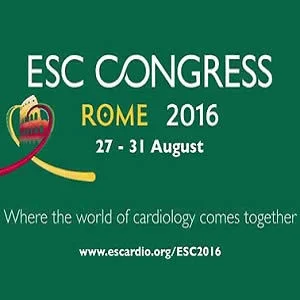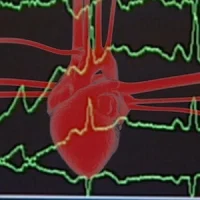New guidelines on atrial fibrillation were published today in the European Heart Journal, the European Journal of Cardio-Thoracic Surgery and the ESC website. The guidelines were developed in collaboration with the European Association for Cardio-Thoracic Surgery (EACTS).
“These are the first guidelines to target every atrial fibrillation specialist,” said Dr Stefano Benussi (Switzerland), Task Force Co-Chairperson (EACTS). “They were written by clinical cardiologists, electrophysiologists, cardiac surgeons, a neurologist and a cardiovascular nurse.”
Professor Paulus Kirchhof
(UK/Germany), Task Force Chairperson (ESC) also explained that integrating input from different specialties will help improve outcomes in patients with AF.
According to estimates, approximately 14 to 17 million people will suffer from atrial fibrillation in the European Union by 2030 with nearly 215,000 new patients per year. AF can increase the risk of death and is also a major contributor to stroke. Oral anticoagulation with vitamin K antagonists (VKAs) or
non-VKA oral anticoagulants (NOACs) can prevent the majority of
ischaemic strokes in patients with atrial fibrillation and prolong life.
NOACs are recommended as the first line anticoagulant in eligible
patients and are proven to be effective in preventing strokes as effectively or slightly better than warfarin. They are also associated with less intracranial bleeding and
death. To date, VKAs are considered effective therapy for stroke prevention in atrial
fibrillation and are considered to be the first choice in patients ineligible for
NOACs.
The new guidelines offer recommendations on how to deal with patients who develop complications on anticoagulation. Specific guidelines on reinitiation of anticoagulation
after a bleed, how to manage bleeds, and how to manage patients who have
an ischaemic stroke on anticoagulation are included.
“Previous guidelines focused on which patients should receive
anticoagulation and that issue is largely settled,” said Professor
Kirchhof. “The new guidelines also address the long-term challenges in
anticoagulated atrial fibrillation patients that all too often lead to
discontinuation of anticoagulant therapy despite prognostic benefits in
the long term.”
The new guidelines place more emphasis on the early diagnosis of atrial fibrillation before the first stroke. This can be done through targeted electrocardiogram (ECG) screening in people over 65 years of age and in high risk groups such
as patients with pacemakers.
“Many people have atrial fibrillation and don’t know it, and will
only find out when they develop a first stroke,” said Professor
Kirchhof. “Early diagnosis enables us to prevent strokes with
anticoagulation.”
The Task Force recommends creating AF Heart Teams with experience in antiarrhythmic drugs, catheter ablation and surgery so that they are able to take difficult decisions on rhythm control and hybrid therapy. They can also support complex decisions for the prevention of stroke. What the guidelines suggest is the use of integrated management approach that is based on cooperation between patients, health professionals including general practitioners and cardiologists, and the AF Heart Team. The ESC is also providing free smartphone tools for patients with AF to improve communication and patient involvement.
Dr Benussi said: “There is growing awareness that we need teams to
treat complex patients with atrial fibrillation. Putting patients at the
centre of the treatment algorithm should improve the chances of getting
rid of the arrhythmia, with the lowest possible risk. AF Heart Teams
should be deployed particularly when the results of treatment are
unsatisfactory.”
Source: ESC
Image Credit: ESC










